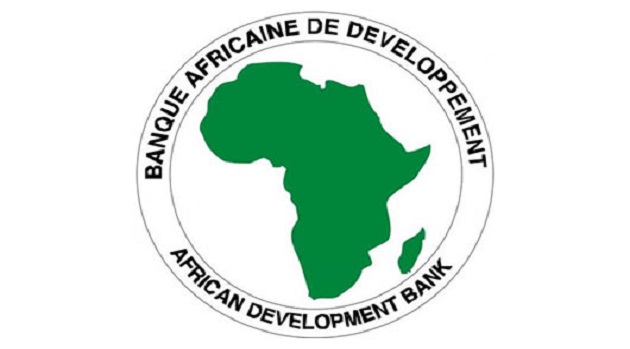General News
Why Only Truly Indigenous E-Commerce Companies Are Champions

By Dr. Ajit Sigh, international trade lawyer spoke in Lagos on a short visit to Nigeria
By midday on Tuesday September 4th 2018, a remarkable development,whose reverberations are still felt today, shook the e-commerce world and the whole of Wall Street.
Amazon, an American e-commerce giant, had followed Apple Inc. to become the second U.S. company to reach $1 trillion in market value after the company’s shares climbed 1.9%, briefly topping the $2,050.27 needed to push the company’s value above $1 trillion.
To put this in sheer perspective, it is fitting to bear in mind that Nigeria’s current external reserves is pegged at $42.3billion (as at October 25th), a figure which amounts to less than five per cent of Amazon’s worth.
Available data shows that it took Amazon only about 165 trading days to grow its market value from $600 billion in January 2018 to its valuation of $1 trillion in September 2018 – an astronomical rise that saw it put daylight between it and the likes of Microsoft and Google’s parent company, Alphabet. Conversely, Apple needed about 183 trading days to hit the $1 trillion mark after it reached $900 billion in November 2017.
Amazon’s rise can be put down to its unalloyed status as a disruptive force of commerce, with analysts and other Wall Street watchers predicting the company’s imminent overtaking of Apple as the biggest and most valuable company in the United States.
Indeed, the identity of the first five companies on the list of the world’s most valuable companies – Apple, Amazon, Alphabet Inc., Microsoft Corp. and Facebook Inc. – further goes to demonstrate the pre-eminence of tech companies and the undeniable role of technology in the emerging world order of digital wealth where oil, previously the most valuable resource, has been relegated to the back-burner.
Despite its disruptive business model and series of high-profile acquisitions which have undoubtedly boosted its revenues, Amazon remains an e-commerce company – a sector that is fiercely indigenous.
With the backdrop of all the arguments against some of its unfair business practices, Amazon remains a hit with a large segment of the American populace who are traditionally at home with online shopping. According to research, an estimated 79 percent of Americans shop online, a figure that amounts to abouteight in 10 Americans.
While Amazon can be reckoned with as a global e-commerce behemoth, there is no denying the fact that, it will struggle to replicate the brilliant success it has enjoyed in other climes.
As part of its expansionary plans, Amazon has spread its operations to over a dozen countries including the United Kingdom, India, China and Singapore. While sales outside the United States amounts to about a third of its total earnings, the company has also come to learn that selling abroad is not easy. In addition, it has also come to the realization that, e-commerce is best left to the indigenous players who understand the terrain and idiosyncrasies in each country.
Though it has enjoyed a fair measure of success in India where it has attempted to take on FlipKart – the country’s predominant indigenous player – with lower prices, Amazon has been almost an abysmal failure in China – the world’s fastest growing e-commerce market. Alibaba, Pinduodo, Taobao and others are deeply entrenched in the country owing mainly to their understanding of the complex vortex of persuasions influencing the shopping habits at play in that country. Today, Amazon struggles to retain a foothold in China, whereas Alibaba enjoys over 50% of the market share.
Considering the immense financial resources and spending power at its disposal, one will expect that Amazon will conquer every market it berths in. However, the incontrovertible fact remains that, to succeed in any market requires more than just financial power, but a large dose of street-smartness, an understanding of the people and a business model that is realistic and suited to their local circumstances.
Here in Nigeria, the reality is not much different.
Ingrained in the cultural complexities of a society or people are certain peculiarities or predilections, all of which contribute to shaping their every tradition, including their shopping habits.
Despite the growing popularity of online shopping, the average Nigerian, try as hard as you can, will never shake off the practice of preferring to see, touch and/or experience a product before parting with hard-earned money, thereby justifying the increasing relevance of brick-and-mortar stores in Nigerian e-commerce.
Trust also remains a major issue.
In spite of the large strides recorded in the e-commerce sector, many Nigerians are still understandably reluctant to drop their credit card details online due to the real and ever-present potential of cyber-fraud. Others, who have managed to embrace the e-commerce revolution, are still keen to put their trust in the confidence-inducing personal touch that the patronage of a physical retail store inspires. What about the millions of unreached or under-served Nigerians in the hinterlands, devoid of a reliable internet connection and the basic requirements to embrace e-commerce?
It must be stated here that the e-commerce industry also has the capability to unmask mere hype from substance.
Since Nigerians got bitten by the e-commerce bug, the country has seen several foreign players, many of them backed by angel investors and venture capitalists. These fancy new shoesemerge on the scene by painting a larger-than-life picture of overwhelming boom only to fade away after a while and exit the country quietly.
The scenario is a simple but vicious one: the investors are buoyed by projections of Nigeria as Africa’s biggest market, blessed with a youthful, aspirational population on the verge of cracking the e-commerce conundrum and exploding into a money-spinning investor’s dream.
But what happens?
These foreign investors, for all their good intentions, remain what they are famous for: profit-seeking, short-term oriented business impresarios. Once they get tired of seeing their investments fail to yield the promised returns, the patience wears thin. Once this happens, it is only a matter of time before Nigeria counts the many-faceted costs of another failed venture.
History and statistics have revealed worldwide that, only a truly indigenous e-commerce company backed by its own people has the staying power to stick and stand the test of time, irrespective of the regulatory, operational and industry-specific challenges that may arise. Indeed, only a locally-backed e-commerce company with a realistic business model that is not short-term in outlook, can invest significantly in infrastructure and care sufficiently not to embark on random job cuts, all in a bid to satisfy the cravings of impatient venture capitalists.
Nigeria boasts perhaps only one of such powerhouses in Konga – which recently combined its operations with Yudala, another bold player with a futuristic but realistic e-commerce model which has been widely aped by other global e-commerce companies, Amazon inclusive.
Where an e-commerce company proves itself adept at adapting to local circumstances; when it has the boldness to accommodate or fuse online shopping with cost-intensive offline stores nationwide which cater to the needs of the unreached, thereby bringing the convenience of e-commerce home to them; when a business invests considerably in massive regional warehouse facilities; refrains from retrenchments or down-sizing even in the most harsh business cycles and quietly goes about empowering more Nigerians with employment opportunities through its expansionary and ambitious projects, then you are closer to building an e-commerce giant that can rival the Amazons and Alibabas of this world.
Konga owes it to every Nigerian to remain in business forever…
General News
More 14m Farmers to Benefit from AfDB-backed Initiative

Additional 14 million farmers in 37 low-income and vulnerable countries served by the African Development Fund, the Bank Group’s concessional financing window, are set to benefit from a technology initiative targeted at scaling up climate-resilient food production across the continent.

This comes after the African Development Bank Group (AfDB) and the International Institute of Tropical Agriculture (IITA) signed a $16.61 million grant agreement to launch the third phase of the Technologies for African Agricultural Transformation Programme (TAAT-III)
TAAT-III, funded by the African Development Fund, is expected to consolidate earlier gains benefiting 14 million more farmers while introducing a more sustainable, private sector-driven delivery approach.
AfDB said the initiative aims to reinforce seed and technology distribution systems, deepen partnerships with governments and agribusinesses, and expand the digital tools, including its technology e-catalogues and real-time monitoring platforms, to speed up deployment of high‑impact solutions.
Simeon Ehui, director general of IITA, commented: “TAAT-III allows us to deepen the delivery of science‑based solutions that improve farmers’ yields and livelihoods. Working with the Bank and our partners, we are scaling technologies that make Africa’s food systems more resilient and competitive.”
Since its launch in 2018, TAAT has become one of Africa’s most effective and transformative platforms for agricultural innovation, reaching nearly 25 million farmers and boosting productivity across major staples.
The initiative has expanded climate-resilient agricultural practices across over 35 million hectares.
In a statement, the AfDB said working closely with the Consultative Group of International Agricultural Research Centres and national and regional partners, TAAT has increased crop yields up to 69% and generated more than $4 billion in additional agricultural value.
Countries including Sudan, Ethiopia, Zambia, Zimbabwe, and Nigeria have recorded notable gains in staple crop productivity and resilience to climate shocks.
Nigeria has been a key beneficiary of TAAT initiatives. Under its Wheat Compact, farmers adopting improved heat-tolerant varieties more than doubled yields from 1.7 tons per hectare to 3.5 tons per hectare.
Programme supported seed system assessments also helped inform national reforms to expand access to certified, climate-resilient seeds.
Speaking at the signing ceremony, Abdul Kamara, director general of the Bank Group’s Nigeria Country Department, said the new phase will focus on scaling innovation more rapidly
Kamara said: “TAAT-III underscores the Bank’s commitment to ensuring that proven, climate-resilient agricultural technologies reach farmers faster and at scale. This phase strengthens the systems that deliver innovation, helping countries boost productivity, enhance resilience, and align agricultural transformation efforts with the Bank’s four new areas of emphasis, dubbed the Four Cardinal Points.”
General News
Conoil Bonanza Winners Emerge

Conoil Plc is spreading joy this Valentine season as the first group of winners in its Valentine Bonanza promotion have been announced and rewarded. Launched on February 14, the campaign continues to delight customers at participating retail outlets.

The initial raffle draw, conducted on February 21, saw fortunate customers receive ₦10,000 worth of free petrol each. The draw was carried out publicly, with media representatives present to ensure full transparency. With the promotion still ongoing, more customers have the opportunity to join in and potentially be among the next winners.
A Conoil Management spokesperson explained that the initiative is a way to show appreciation to loyal customers for their ongoing support. “Our customers have responded impressively to the bonanza, with strong participation recorded across our stations,” the spokesperson said.
The second and final phase of the promotion is now in motion. Customers who purchase at least 10 litres of petrol at any participating Conoil station remain eligible to win in the grand finale raffle.
The grand finale is set for February 28 at 12 noon. Motorists in Lagos and Ogun states are encouraged to visit Conoil outlets to collect their tickets and take part in the exciting conclusion of this Valentine celebration.
General News
PalmPay Couples Show How Love Is Funded Digitally

PalmPay users took to the #LoveWithPalmPay campaign to show how experiences are powered through seamless banking.

It’s the month of love and social media has been filled with couples showing affection with gifts. As digital payments become embedded in everyday life, the way relationships are planned, funded, and experienced is evolving.
Recent insights from SBM Intelligence 2025 ‘Love in the Air’ report show that despite economic pressures, most Nigerians still set aside dedicated budgets for Valentine’s Day, with the largest percentage planning to spend between N51,000 and N100,000, while less than 5% are willing to spend above N500,000.
This growing intentionality highlights the need for platforms that help people manage their money more effectively, offering features like free transfers and tools that make it easier to send, track, and preserve funds while still showing up for meaningful moments.
Through the #LoveWithPalmPay campaign, PalmPay set out to show how the platform is enabling users to plan, pay, and celebrate meaningful moments with greater ease.
During the Valentine’s season, PalmPay invited couples across Nigeria to share their stories through the #LoveWithPalmPay campaign, celebrating how digital banking supports their individual expressions of love.
The campaign saw strong participation, with many PalmPay couples submitting entries that showcased how they use the app to plan surprises, pay for outings, and stay connected through everyday transactions.
From these entries, four couples were selected, each showcasing how PalmPay has enabled fast and reliable transactions in key moments.
One video from @simply.omotoshan, one of the selected couples, captures the role of seamless payments in making their spontaneous moments possible.
She said in her entry video: “Our cutest money moment with PalmPay was when we planned our Valentine’s picnic and realized we had forgotten half of the things we needed; literally, half of everything. We rushed to the mall to get cakes, food, decorations, and all the essentials. When it was time to pay, we used PalmPay.
“The transaction was smooth, fast, and stress-free. In no time, we were done setting up our Valentine-themed picnic with everything perfectly ready. Honestly, all our experiences with PalmPay have been easy and satisfying, but this one is definitely our cutest money moment. Thank you, PalmPay.”
A testimonial from the fourth selected couple, Mohammed and his wife, reflects his excitement: “Hello PalmPay, thank you so much for selecting us as one of the winners of the #LoveWithPalmPay campaign. We truly appreciate this. My wife and I are very grateful. Thank you, PalmPay, for the love and support. We’re so happy and thankful for the N100,000 reward. We love you, PalmPay, and long live PalmPay. Thank you so much.”
Beyond the feel-good stories, the campaign reflects a broader shift: fintech is no longer just about transactions, it’s about enabling experiences. Reliable payments, fast transactions, and accessible financial tools reduce the friction that can disrupt important moments, allowing users to focus on connection rather than logistics.
From paying for dinner to managing other expenses, PalmPay continues to demonstrate how digital financial services support modern relationships, proving that in today’s economy, love is not only felt, it’s funded digitally.

 General News2 days ago
General News2 days agoKPMG Strengthens Africa Leadership to Support Long‑term Growth Across the Continent

 E-Business2 days ago
E-Business2 days agoesentry 2025 Report Shows Healthcare, Financial Services and Telecoms as Staging Grounds for Increased Cyberattacks in Africa

 E-Financial2 days ago
E-Financial2 days agoFlutterwave Rises from Lagos Startup to Africa’s Fintech Powerhouse

 News1 day ago
News1 day agoNITDA Equips Federal Character Commission with Data Tools to Drive Public Sector Reform

 News2 days ago
News2 days agoNigeria, EU Ink Research, Innovation Deal Worth €100Bn

 E-Financial1 day ago
E-Financial1 day agoHistory is Watching: Tinubu’s Moment to Rescue Nigeria’s Stolen Future

 Telecom1 day ago
Telecom1 day agoTelecom Giant MTN Injects N1.0 Trillion CAPEX into Network Expansion

 General News2 days ago
General News2 days agoPalmPay Couples Show How Love Is Funded Digitally














